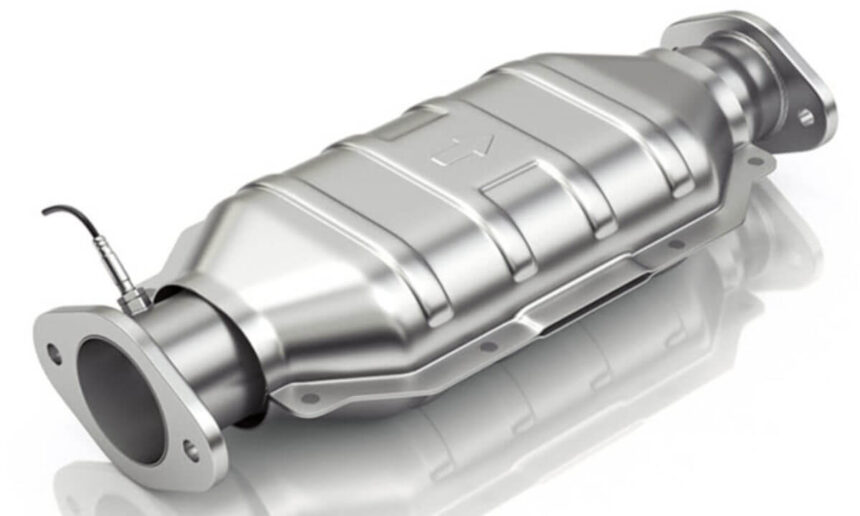This article will discuss why catalytic converters are stolen and how you can protect your vehicle.
Your car’s catalytic converter is an integral part of the emission control system, and it helps reduce harmful pollutants in exhaust gases.
Most cars on roads today have catalytic converters, and they are usually made of stainless steel or ceramic.
What is a catalytic converter?
A catalytic converter is a device that helps to reduce pollution from car exhausts. It does this by converting harmful gases into less harmful substances.
The converter contains a metal catalyst, usually platinum or palladium, which helps to speed up the chemical reaction. The converter is located between the engine and the muffler in the exhaust system.
When the engine runs, exhaust gases flow through the converter and are transformed into less harmful substances.
Catalytic converters were first introduced in the 1970s and have become an essential part of most cars’ emissions control systems.
How does a catalytic converter work?
A catalytic converter is a device fitted to the exhaust pipe of an internal combustion engine.
It works by converting some of the harmful emissions from the engine into less harmful substances.
The most common type of catalytic converter contains a metal catalyst, such as platinum or palladium, which helps convert the emissions into harmless gases such as nitrogen and carbon dioxide.
The catalyst is usually in the form of a honeycomb-like structure, which provides a large surface area for the reaction.
The converter can also contain other materials, such as zeolites, which help to reduce emissions further.
What are the benefits of a catalytic converter?
The following are some of the benefits of a catalytic converter:
- It reduces harmful emissions from the engine, such as carbon monoxide, hydrocarbons, and nitrogen oxides.
- They help to protect the environment by reducing pollution.
- It can improve fuel economy by up to 10%, as it helps the engine to run more efficiently.
- It can also reduce engine noise.
Why are catalytic converters stolen?
Catalytic converters are stolen because they contain precious metals, palladium, and platinum. These metals can be sold for a high price, and the thief can make a quick profit.
Another reason why catalytic converters are stolen is that they are easy to remove and sell, and the thief does not need any special tools or skills to do so.
Catalytic converter theft is a severe problem because it can lead to costly repairs for vehicle owners. In some cases, the cost of replacing a stolen converter can exceed $1,000.
This type of theft can also cause environmental damage, as converters help to reduce emissions from vehicles. If you suspect that your catalytic converter has been stolen, report it to the police.
How can I protect my catalytic converter?
There are a few things you can do to protect your catalytic converter:
- Please park your car in a garage or well-lit area, making it more difficult for a thief to steal the converter.
- Install a security device, such as a tracker, to help deter thieves and enable the police to track down your car if it is stolen.
- Always lock your car, even if you only leave it for a short period.
- Consider fitting a catalytic converter guard, a metal cage that surrounds the converter and makes it more difficult to remove.
If you have had your catalytic converter stolen, you can report it to the police and claim your car insurance.
There are many reasons why catalytic converters are stolen. The most common reason is that they contain precious metals, such as platinum, palladium, and rhodium. These metals can be sold for a high price, making catalytic converter theft a profitable crime. Other reasons include that converters are easy to remove and sell and are often not well-secured to vehicles.







